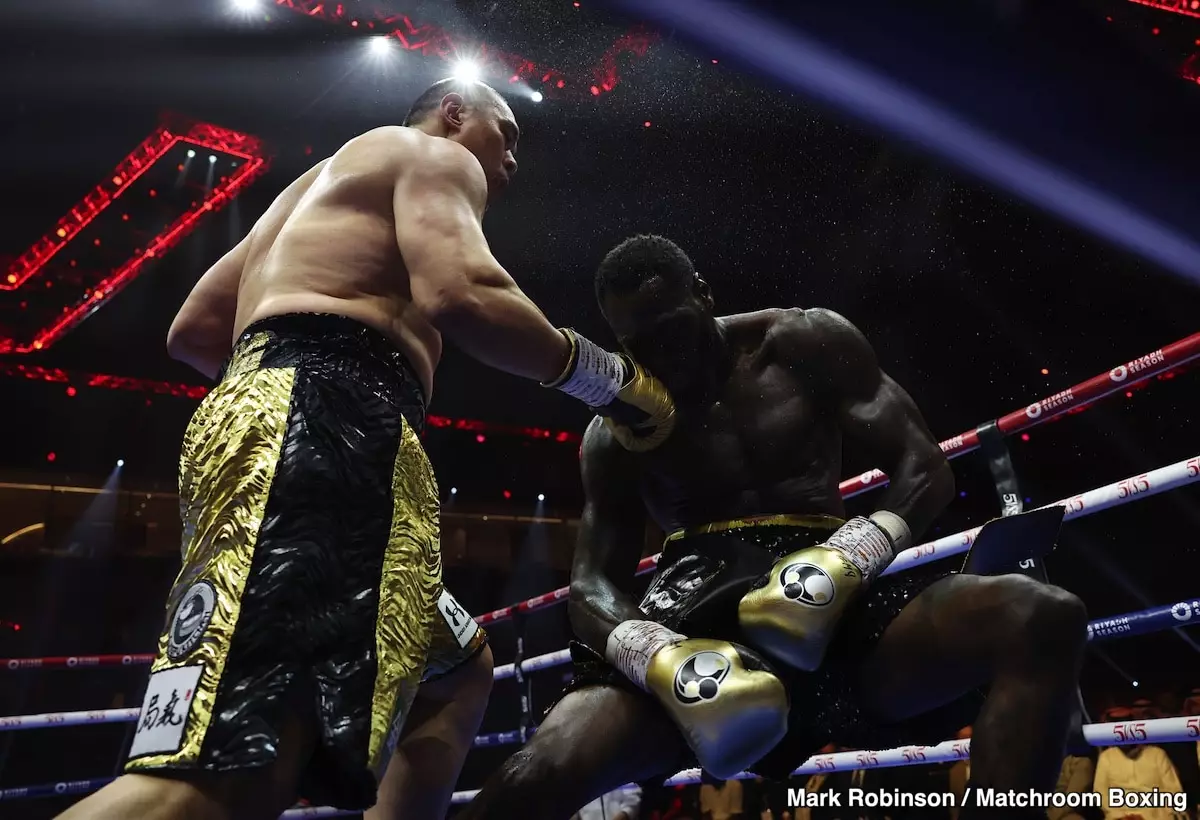Deontay Wilder, once a formidable force in the heavyweight boxing division, currently finds himself at a precarious junction in his career. With his next fight looming in 2025, the stakes have never been higher. Trainer Malik Scott asserts that Wilder’s career may well hang in the balance. As we delve into the factors affecting Wilder’s recent performances, the implications of his wealth, and the changes in his training regime, we will explore what is next for this once-dominant champion.
Wilder’s record now stands at 43 wins, 4 losses, and 1 draw, with an impressive 42 of those victories coming via knockout. However, the current reality is stark. Burdened by back-to-back losses and only one victory in his last five bouts—a win against Robert Helenius in 2022—Wilder’s trajectory has shifted dramatically since he began his professional career in 2008. His most recent defeats leave fans questioning whether his decline is temporary or, indeed, a calamitous trend that could jeopardize his legacy.
Malik Scott, who took the reins as Wilder’s trainer in 2021, claims the heavyweight’s lack of hunger stems from his financial success. With a net worth estimated at $30 million, it is suggested that the fire that previously propelled him in the ring has dwindled. Scott’s observations suggest that Wilder has traded the grit of his early career for the comforts of wealth, potentially stifling his desire to excel.
A significant point of contention among fans and analysts is Scott’s approach to training. Reports indicate that Scott’s desire to transition Wilder from a powerful slugger to a more technical boxer has not gone as planned. The outcomes of his last few matches illustrate a troubling trend: Wilder’s performances have been lackluster, particularly in the fights against Zhilei Zhang and Joseph Parker, where he seemed more passive than aggressive.
Instead of his traditional knockout approach that defined his earlier successes, Wilder now appears uncertain in the ring, leading to defeats that could be interpreted as strategic failures. The idea of overhauling a fighter’s core style late in his career sparks significant debate. Many argue it undermines the instincts and strengths that made Wilder a contender in the first place.
The ramifications of changing training strategies can be profound. Fighters develop patterns based on extensive training and fight experience, and altering these patterns can have unintended consequences. Wilder’s hesitation to let go of his former coach, Mark Breland, raises questions about loyalty versus performance. His relationship with Scott remains firm despite a disheartening record of 1-3 since the coaching switch, leading one to wonder whether he is committed to a vision that others believe is misguided.
As Scott pointed out, the crucial task for Wilder will be finding the hunger to reclaim his place within the ranks of top contenders. Can he merge the top-level skills he once demonstrated with his new tactical approach? Or will the tension between what he has been and what he is trying to become ultimately define his legacy?
As Deontay Wilder prepares for his next bout, it is clear there are many variables at play. The fight in 2025 is a defining moment, not just in his career but in his life as a professional athlete. With his reputation on the line and his performance under scrutiny, the pressure mounts. Fans and analysts alike will be watching closely to see if Wilder can adapt, retain his ferocity, and execute effectively in the ring.
Ultimately, whether the considerable wealth he has accumulated serves as an anchor or a motivator could shape the narrative of his career. At this juncture, with everything on the line, the question remains: Will he rise to the occasion or falter under pressure? The answers lie not just in his financial circumstances but in his ability to rediscover the fighting spirit that once made him a champion. As 2025 approaches, the boxing world will be holding its breath.


Leave a Reply